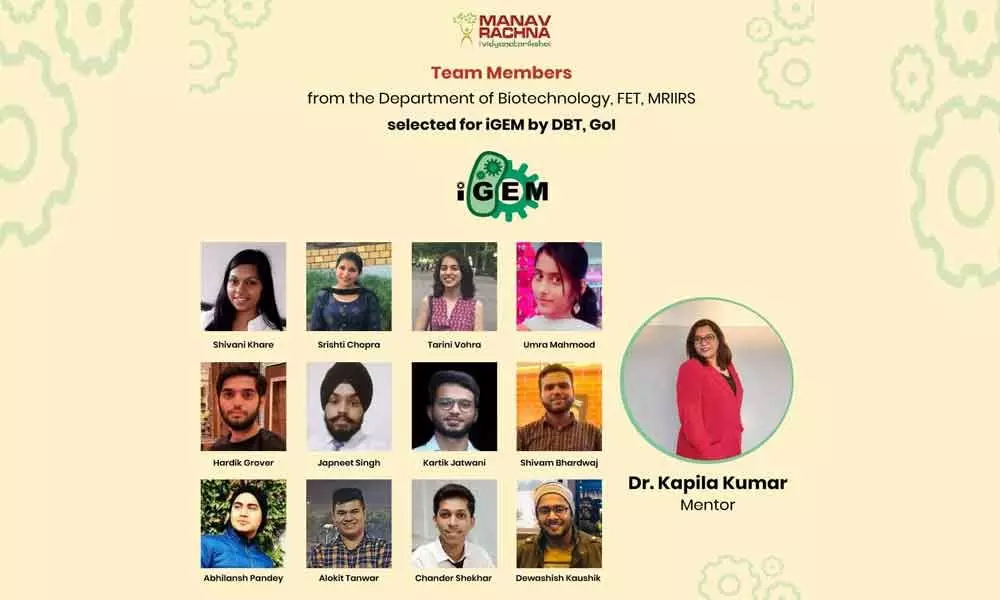Government of India funds project by students' team that will participate in iGEM at MIT, Boston

A group of 11 students under guidance of Dr. Kapila Kumar Assistant Professor, Manav Rachna International Institute of Research and Studies are one of the five teams funded by Department of Biotechnology, Government of India to participate in iGEM 2020 being held in MIT, Boston, USA.
A group of 11 students under guidance of Dr. Kapila Kumar Assistant Professor, Manav Rachna International Institute of Research and Studies are one of the five teams funded by Department of Biotechnology, Government of India to participate in iGEM (International Genetically Engineered Machine) 2020 being held in MIT, Boston, USA.
A group of 11 students under guidance of Dr. Kapila Kumar Assistant Professor, Manav Rachna International Institute of Research and Studies are one of the five teams funded by Department of Biotechnology, Government of India to participate in iGEM (International Genetically Engineered Machine) 2020 being held in MIT, Boston, USA.
They will present their project 'Li-Koff'. It is a genetically engineered E. Coli bacteria which detects and degrades N-nitrosamines present in water samples. These N-nitrosamines are known to be potent carcinogens and are present everywhere around us e.g. alcoholic beverages, cigarette smoke, processed meat, disinfected water etc. The project also won pole position at microvitae held at Ram Lal Anand College, Delhi University, in February 2020.
Speaking to The Hans India, a team member Srishti Chopra said, "Our project has been funded by the Department of Biotechnology, Government of India. We started with our project Li-Koff in November 2019. Li-Koff is a bio-sensing solution which detects and degrades Nitrosamines using synthetic biology. Even though Nitrogen in its molecular form (N2), is the most abundant and an essential compound in earth's atmosphere to sustain life, our environmental interest has always manifested its conversion into other chemically reactive forms. With prime focus on carbon pollution in recent decades, the alarming increase in the levels of 'Reactive Nitrogen' in the environment has gone largely unnoticed."
"The various forms of reactive nitrogen on coming in contact with water are known to form one of the compounds as N-Nitrosamines, which have posed a potential threat to human health during drinking water disinfection. N-Nitrosamines are known to be mutagenic, teratogenic and potent human carcinogens present in varied packed food items, cosmetics, pharmaceuticals, industrial effluents and agricultural wastes etc., and form a major chunk in particulate matter, but there most alarming concentration has been in potable water. Development of a specific, sensitive, and affordable biosensing method for these N-nitrosamines, to determine the biocontainment and biotoxicity of their concentration and being able to degrade them is the primary objective of our project," she explained.
















